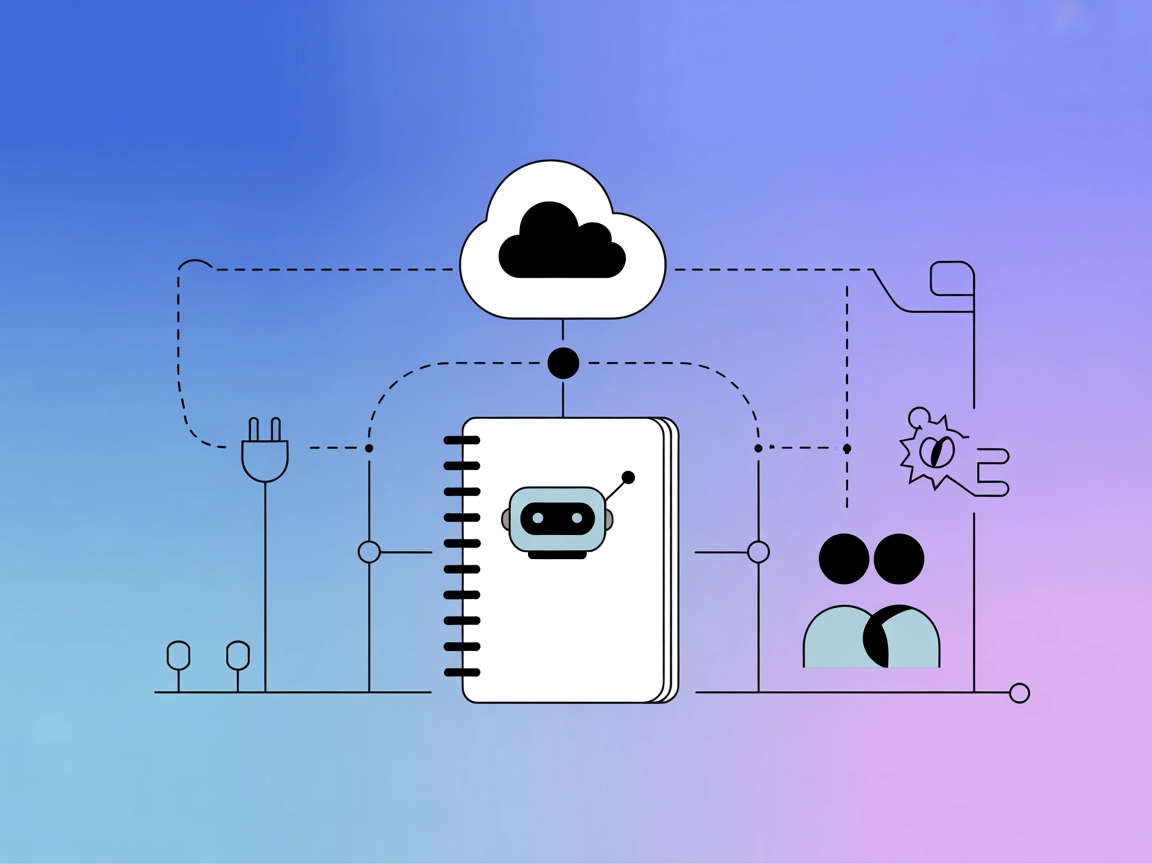
ModelContextProtocol (MCP) Server Integration
The ModelContextProtocol (MCP) Server acts as a bridge between AI agents and external data sources, APIs, and services, enabling FlowHunt users to build context...

Connect your Notion workspace with FlowHunt’s AI for powerful content, database, and workflow automation using the Notion MCP Server.
FlowHunt provides an additional security layer between your internal systems and AI tools, giving you granular control over which tools are accessible from your MCP servers. MCP servers hosted in our infrastructure can be seamlessly integrated with FlowHunt's chatbot as well as popular AI platforms like ChatGPT, Claude, and various AI editors.
The Notion MCP Server is a Model Context Protocol (MCP) server designed to provide seamless integration between Language Models and your Notion workspace. By acting as a bridge, it enables AI assistants to perform a variety of operations within Notion, such as searching, reading, creating, and updating pages and databases. This enhances development workflows by allowing direct interaction with Notion data, enabling tasks like querying database entries, managing file content, and automating the creation or modification of Notion pages. The server standardizes these interactions through tools and resources, making it easier for developers to build intelligent, data-driven workflows that leverage the full capabilities of Notion within an AI-assisted environment.
No explicit prompt templates are mentioned in the repository or documentation.
No explicit resources (as per MCP definition) are enumerated in the available documentation or code.
No specific setup instructions for Windsurf are provided in the documentation.
.env file.npm run build.claude_desktop_config.json file with the following snippet:{
"mcpServers": {
"notion": {
"command": "node",
"args": ["/absolute/path/to/notion-server/build/index.js"],
"env": {
"NOTION_API_KEY": "your_notion_api_key_here"
}
}
}
}
{
"env": {
"NOTION_API_KEY": "your_notion_api_key_here"
}
}
No specific setup instructions for Cursor are provided in the documentation.
No specific setup instructions for Cline are provided in the documentation.
Using MCP in FlowHunt
To integrate MCP servers into your FlowHunt workflow, start by adding the MCP component to your flow and connecting it to your AI agent:

Click on the MCP component to open the configuration panel. In the system MCP configuration section, insert your MCP server details using this JSON format:
{
"notion": {
"transport": "streamable_http",
"url": "https://yourmcpserver.example/pathtothemcp/url"
}
}
Once configured, the AI agent can now use this MCP as a tool with access to all its functions and capabilities. Remember to change “notion” to the actual name of your MCP server and replace the URL with your own MCP server URL.
| Section | Availability | Details/Notes |
|---|---|---|
| Overview | ✅ | Description in README.md |
| List of Prompts | ⛔ | No prompt templates mentioned |
| List of Resources | ⛔ | No explicit MCP resources found |
| List of Tools | ✅ | Detailed in README.md |
| Securing API Keys | ✅ | Shown in Claude Desktop config example |
| Sampling Support (less important in evaluation) | ⛔ | Not mentioned |
Roots Support: ⛔ (Not mentioned)
Sampling Support: ⛔ (Not mentioned)
Based on the two tables, this MCP server provides strong, clear tool support and good setup documentation for Claude, but lacks explicit prompt and resource definitions as well as feature mentions for Roots and Sampling. Overall, it’s a solid implementation for Notion integration but could be improved with richer MCP primitives and multi-platform setup instructions.
| Has a LICENSE | ✅ (MIT) |
|---|---|
| Has at least one tool | ✅ |
| Number of Forks | 25 |
| Number of Stars | 101 |
The Notion MCP Server acts as a bridge between FlowHunt’s AI agents and your Notion workspace, enabling AI-powered search, content creation, reading, updating of pages, and database management—all directly from automated workflows.
You can automate Notion page and database creation, update content, search for information, manage database entries, and even perform block-level operations, all via AI-driven flows.
Store your Notion API key as an environment variable or in a `.env` file, and reference it in your MCP server configuration. This keeps your credentials safe from exposure in code repositories.
Add the MCP component to your FlowHunt workflow, configure the server details in the MCP config section, and provide your MCP server URL. Once connected, your AI agents can utilize all supported Notion operations.
The official documentation provides detailed setup steps for Claude Desktop; Windsurf, Cursor, and Cline are not explicitly covered.
No explicit prompt templates or MCP resources are provided in the current documentation or repository.
Automate Notion content, streamline database management, and empower your AI workflows. Get started with FlowHunt’s Notion MCP integration today.

The ModelContextProtocol (MCP) Server acts as a bridge between AI agents and external data sources, APIs, and services, enabling FlowHunt users to build context...

The Model Context Protocol (MCP) Server bridges AI assistants with external data sources, APIs, and services, enabling streamlined integration of complex workfl...

The onenote MCP Server connects AI assistants with Microsoft OneNote, enabling automated note retrieval, organization, and smart search through standardized pro...
Cookie Consent
We use cookies to enhance your browsing experience and analyze our traffic. See our privacy policy.